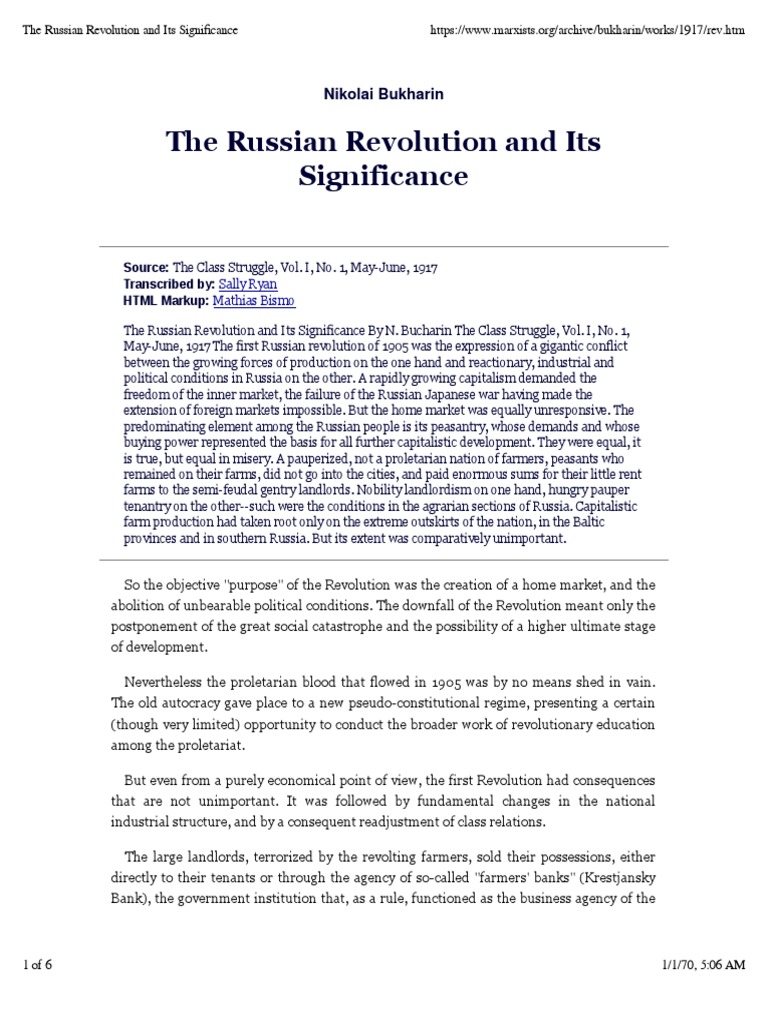The tapestry of history is woven intricately, with threads of ideology and belief shaping the destinies of nations. Among these threads, the teachings of Bahá’u’lláh, the founder of the Bahá’í Faith, emerge as a luminous emblem of unity and transformation, particularly in the context of early 20th century Russia. In this extensive examination, we shall unravel how the tenets propounded by Bahá’u’lláh not only resonated deeply with the Russian populace but also instigated a profound revolution in thought and practice.
To understand the impact of Bahá’í teachings in Russia, one must first engage with the core principles that underpin the Bahá’í Faith. Central to these teachings is the concept of **unity in diversity**, which posits that all humanity is interconnected, transcending cultural, social, and religious divides. This principle emerged as a beacon of hope in the tumultuous landscape of pre-revolutionary Russia, where societal fractures were deepening amidst the strife of class warfare and ethno-religious discord.
1. The Unprecedented Call for Universal Brotherhood
In an era marked by stark inequality and division, Bahá’u’lláh’s message of universal brotherhood struck a powerful chord. He articulated that genuine progress could only be achieved through collective action and mutual respect among all peoples. This ethos not only fostered a sense of belonging among marginalized groups but also empowered individuals to envision a world where collaboration eclipsed competition. As Russia grappled with issues of serfdom and class disparity, the clarion call of unity provided a framework through which revolutionaries could advocate for social reform.
2. The Advent of Independent Thought
Bahá’u’lláh’s teachings venerably celebrated the pursuit of knowledge. He encouraged his followers to adopt a position of critical inquiry, harmonizing faith with rationality. This integration of intellect and spirituality ignited an insatiable thirst for learning among the adherents in Russia, inciting a burgeoning movement that emphasized education as the cornerstone of societal advancement. The emergence of independent thought transformed the way individuals perceived their socio-political realities, ultimately catalyzing a desire for systemic reform that fueled revolutionary sentiments.
3. Women’s Empowerment as an Instrument of Change
In a society where women were often relegated to the periphery, Bahá’u’lláh’s insistence on gender equality emerged as a revolutionary proposition. He ardently proclaimed that the empowerment of women was essential for the establishment of a just society. This radical viewpoint inspired a cadre of women in Russia to champion their rights, breaking the shackles of patriarchy and igniting movements that underscored education and participation. The propagation of women’s education became a cornerstone of the Bahá’í community, nurturing leaders who would challenge entrenched norms and advocate for transformative legislation.
4. The Role of Spirituality in Political Thought
At the heart of Bahá’í teaching is the belief that spirituality should not be confined to the personal realm but should permeate all aspects of life, including politics. Bahá’u’lláh envisions a world where governance is an extension of spiritual ideals, leading not just to lawfulness but to ethical leadership. This notion resonated with Russian revolutionaries as they sought to replace autocratic rule with governance rooted in collective welfare and justice. The interplay of spirituality and politics proposed by Bahá’í philosophy inspired a re-thinking of political engagement as a sacred vocation, forging a revolutionary spirit that opened pathways to social equity.
5. The Embrace of Tolerance and Forgiveness
In stark contrast to the prevailing dogmas of the time, Bahá’u’lláh’s teachings promulgated a doctrine of tolerance and forgiveness. This was particularly salient in a Russia scarred by internecine conflicts and religious schisms. His exhortations to transcend hatred and to cultivate compassion served as a powerful antidote to the animosities that plagued the nation. Leaders and influencers who adopted these teachings became arbiters of peace, advocating for dialogues across polarized factions. This emphasis on reconciliation rather than retribution sowed seeds of societal transformation that were vital for the revolution.
6. Bridging Religious Divides
The prophetic vision of Bahá’u’lláh extended beyond mere human unity; it envisioned the reconciliation of various religious beliefs as well. In a nation rich with diverse spiritual traditions, this promote of interfaith dialogue provided a unique appeal to the Russian populace. Bahá’í teachings imbued individuals with the conviction that understanding and respect for different faiths were essential for coexistence. This perspective galvanized communities to transcend religious boundaries, encouraging a solidarity that was crucial in the revolutionary milieu where sectarian violence threatened to destabilize society.
7. The Legacy of Bahá’í Influence on Russian Society
The ripple effects of Bahá’u’lláh’s teachings in Russia cannot be overstated. As nascent revolutionary ideas percolated through the populace, the allegorical weight of his message became apparent. The call for a new order, characterized by unity, equality, and justice, galvanized action and inspired a generation to engage with the turbulent currents of change. The Bahá’í community emerged as a microcosm of what a reformed society could be—integrated, egalitarian, and spiritually attuned. Ultimately, the movement catalyzed a broader societal introspection, compelling individuals to reflect on their roles as architects of a new world.
In conclusion, Bahá’u’lláh’s teachings served as both a torch and a catalyst during pivotal moments in Russian history. By inspiring a revolutionary zeitgeist grounded in unity, knowledge, and equality, these teachings invited individuals to transform adversity into opportunity, forging a path to an emergent model of collective prosperity. The interplay of these teachings with the tumultuous events of the era encapsulated a profound truth: that the seeds of revolution often germinate in the fertile soil of profound spiritual and ethical conviction.
